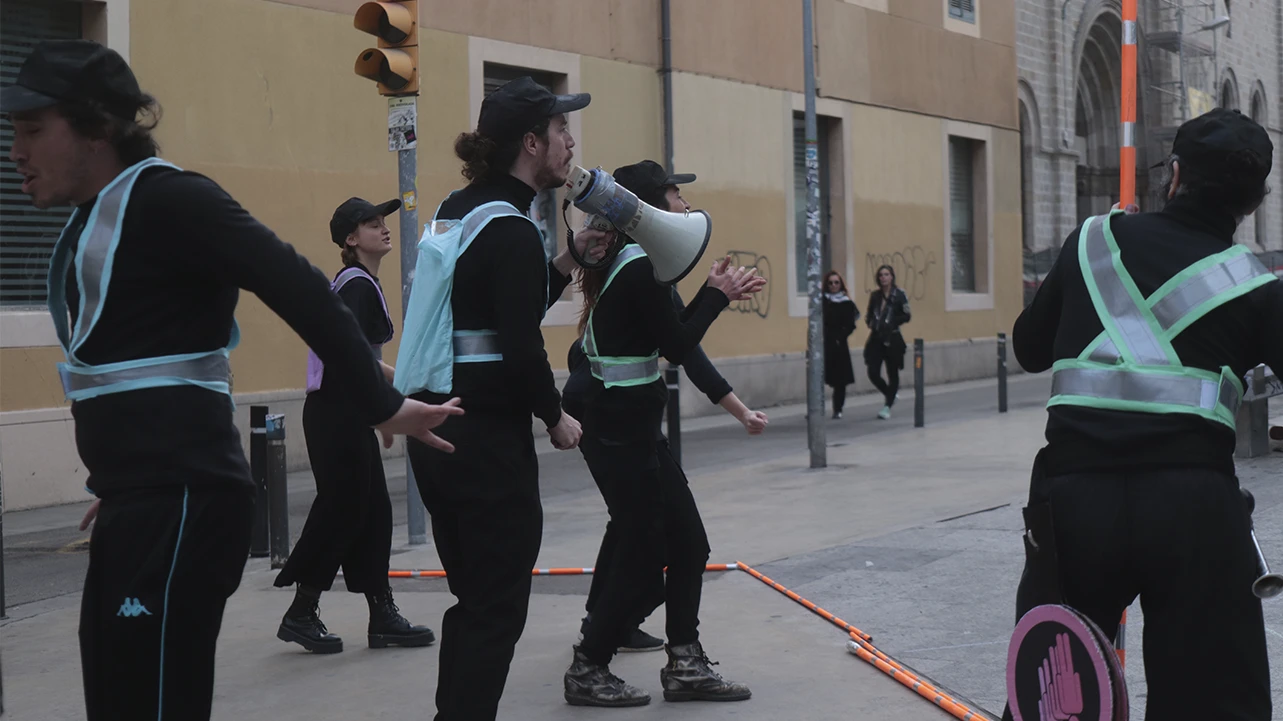
Performance by the Teatro en Movimiento Callejerx company. Photo: Teatro en Movimiento Callejerx
For the first time, the Museo Reina Sofía welcomes Óprima!, an annual encounter which, since 2022, has gathered collectives, associations and creatives with an interest in uniting theatre and activism to drive social transformation via Theatre of the Oppressed: a practice, created by Brazilian dramatist and educator Augusto Boal in the 1960s, which puts forward “a theatre of oppressed classes for the oppressed” as a tool to fight against oppressive structures.
In previous years, the encounter has been carried out in cities such as Lisbon, Braga, Porto and Setúbal, among others. Propelled by the Centro de Creación e Investigación Cultural (the Centre for Cultural Creation and Research, CCIC) La Tortuga and Museo Situado, the encounter disembarks in Madrid to keep on reflecting on Theatre of the Oppressed and to share resources that contribute to the social struggles in which the participants are involved.
Check the full programme here to see the activities held in the sites of CCIC La Tortuga and Ateneo La Maliciosa.
Organised by
Organised by
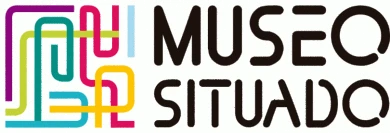
Agenda
viernes 01 nov 2024 a las 10:00
Workshop. Street Theatre
Conducted by the Teatro en Movimiento Callejerx company, this two-day theoretical and practical activity seeks to explore creative processes in groups by way of stage exercises linking the discourse of ritual action to the mission of creating collective reflections on urgent issues. Led by Ximena Cañas Abell (director and dramatist) and Lucía Valenzuela Chacaltana (integrated design), the activity revises street performance techniques and the relations they bear to feminisms.
sábado 02 nov 2024 a las 10:30
Workshop. Street Theatre
Conducted by the Teatro en Movimiento Callejerx company, this two-day theoretical and practical activity seeks to explore creative processes in groups by way of stage exercises linking the discourse of ritual action to the mission of creating collective reflections on urgent issues. Led by Ximena Cañas Abell (director and dramatist) and Lucía Valenzuela Chacaltana (integrated design), the activity revises street performance techniques and the relations they bear to feminisms.
viernes 01 nov 2024 a las 18:00
Augusto Boal and Forming Theatre of the Oppressed. Discussion
Where do the techniques and methods systemised by Augusto Boal stem from in the poetics of Theatre of the Oppressed? Setting out from an investigation by Geo Britto, this discussion analyses Boal’s developmental actions and their influence on the formation, construction and systemisation of Theatre of the Oppressed, as well as their relationship to the turbulent world of his time.
viernes 01 nov 2024 a las 19:30
Of Mud, Flowers and Struggle, by Las Teatrekas
Created from the accounts of women who make up the Las Teatrekas group, and their mothers and grandmothers, this documentary theatre piece is a journey through the history of Vallecas — a homage to all those female residents who built a better neighbourhood for everyone.
sábado 02 nov 2024 a las 15:00
Restoring the Question. Joker Laboratory (Forum Theatre)
Throughout history, theatre has been used as a form of expression and protest against oppression, injustice and social inequalities. Via a re-reading of the third scene of the work The Fear and Misery of the Third Reich (1938) by Bertolt Brecht — which participants must read beforehand — the workshop seeks to revise it from the perspective of Theatre of the Oppressed and create a model of forum theatre, revamping the mechanisms of totalitarian oppression presented in the piece. It also addresses how to conceive of the role of the joker in a possible forum with closed groups, in which fake news has seeped through and hate speech has become legitimised.
This workshop continues on 3 November 2024 at 10:30am in Ateneo La Maliciosa.
sábado 02 nov 2024 a las 18:00
Care All Day, by Laboratório Teatro & Política
A stage performance on the difficulties faced by those who have to care for an ill mother. In a system in which only the family is responsible for caring for their own, this forum theatre piece deals with issues such as the slowness of social responses and bureaucracy in the Estatuto do Cuidador Informal (Statute of Informal Carers), a law enacted in 2019 in Portugal to regulate the rights and duties of carers and the person cared for.
sábado 02 nov 2024 a las 19:30
Without Us Women the World Stops, by Territorio Doméstico
Actuación teatral del colectivo Territorio Doméstico que recoge parte de los cantos, consignas y performances que han creado a lo largo de su historia como activistas A theatrical performance by the Territorio Doméstico collective which gathers the songs, slogans and performances they have created throughout their time as activists working for the rights of domestic workers and carers. A stage piece which drives home their struggles for the dignity and visibility of these works as a key part of sustaining life.los derechos de las trabajadoras del hogar y de los cuidados. Una propuesta escénica que reivindica sus luchas por la dignificación y visibilización de estos trabajos como parte fundamental del sostenimiento de la vida.
Participants
Geo Britto is a founding and coordinating member of Escola de Teatro Popular (ETP) in Rio de Janeiro. He has focused on Theatre of the Oppressed for more than thirty-four years, twenty of which were shared with Augusto Boal. He recently published Augusto Boal e a formação do Teatro do Oprimido (Morula Editorial, 2024).
Jordi Forcadas is a performance artist whose work is situated in social action through art and forum theatre, a Theatre of the Oppressed technique which enables him to explore different forms of citizen participation and to demand human rights. He is the co-founder of Forn de teatre Pa'tothom in Barcelona, where he develops projects with communities in correctional facilities, schools, youth centres, women’s groups and migrant people. He is the author of the book Praxis de Teatro del Oprimido (Forn de Teatre Pa´tothom, 2017).
Las Teatrekas is a theatre group made up of eighteen women of different ages, ranging from 40 to 75. The group began to gestate in November 2015 and was run by two women from the Alto del Arenal Neighbourhood Association, in the Madrid neighbourhood of Vallecas, with the aim of generating a space of encounter that uses theatre as a social tool.
Laboratório de Teatro & Política is an initiative that came into being in 2021, stemming from projects developed by the Tartaruga Falante Association in Portugal. It operates as a space of collective creation and experimentation based on methodologies from Theatre of the Oppressed, dialectic theatre, the army of clowns, agitprop and performance. The initiative fosters debate from the intersection between art and political intervention and approaches issues such as LGBTIQA+ discrimination, the right to housing and informal care.
Teatro en Movimiento Callejerx is a theatre company characterised by its exploration of stage action in public spaces from a feminist angle. From the multidisciplinary, they set forth performances in non-conventional spaces, action art and community art.
Territorio Doméstico is a collective which fosters a space of encounter, care, empowerment and women’s struggles — predominantly migrant women — for the recognition of their rights as domestic and care workers. Founded in 2006, the group works to demand dignity and worth for their work within a system that makes them invisible and precarious, despite them being essential. In 2019, they released the album Sin nosotras se para el mundo (Without Us Women the World Stops), which brings together the songs they have taken to the streets to joyfully vindicate their struggles. Territorio Doméstico is also a member of Museo Situado.
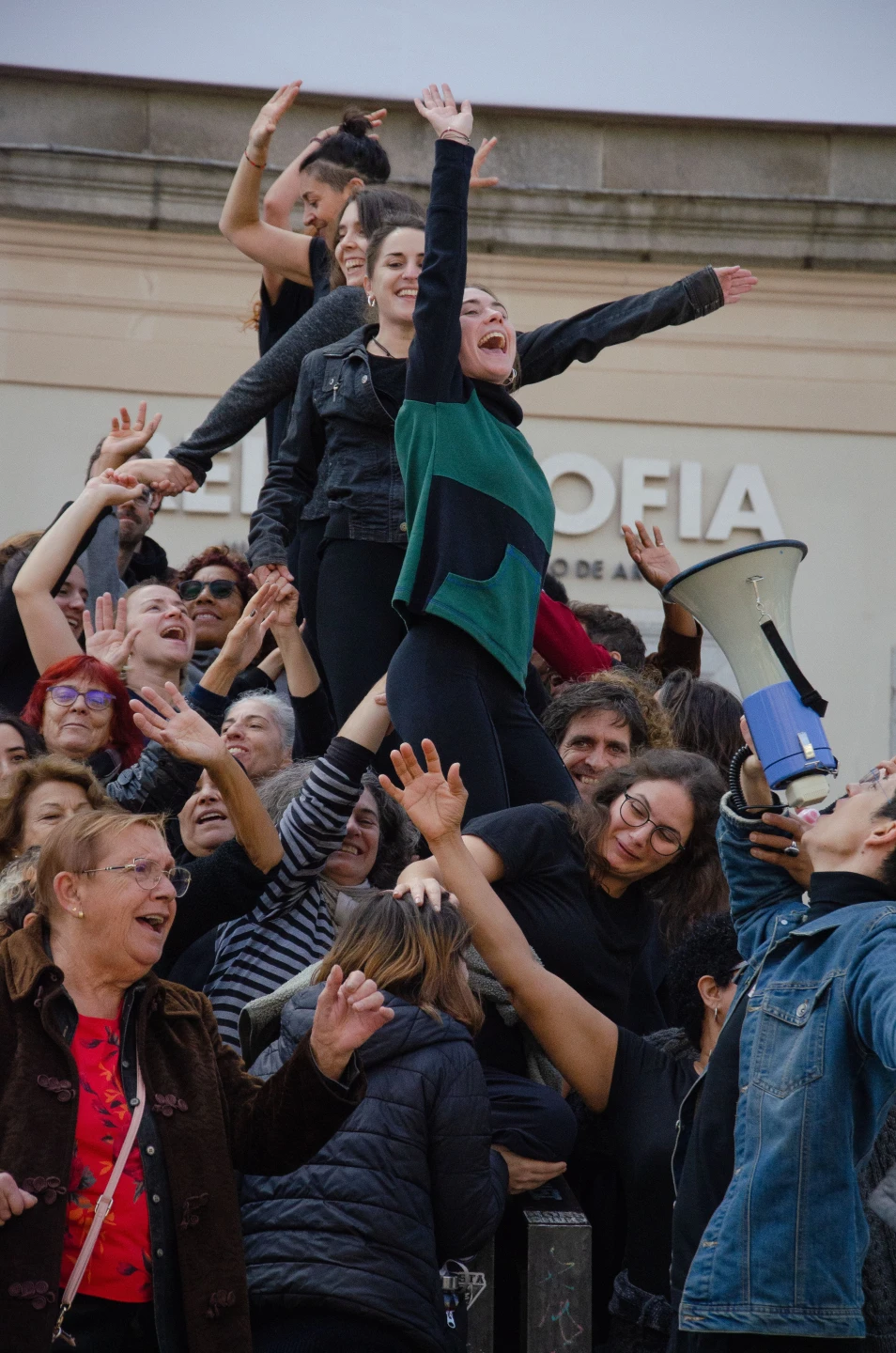
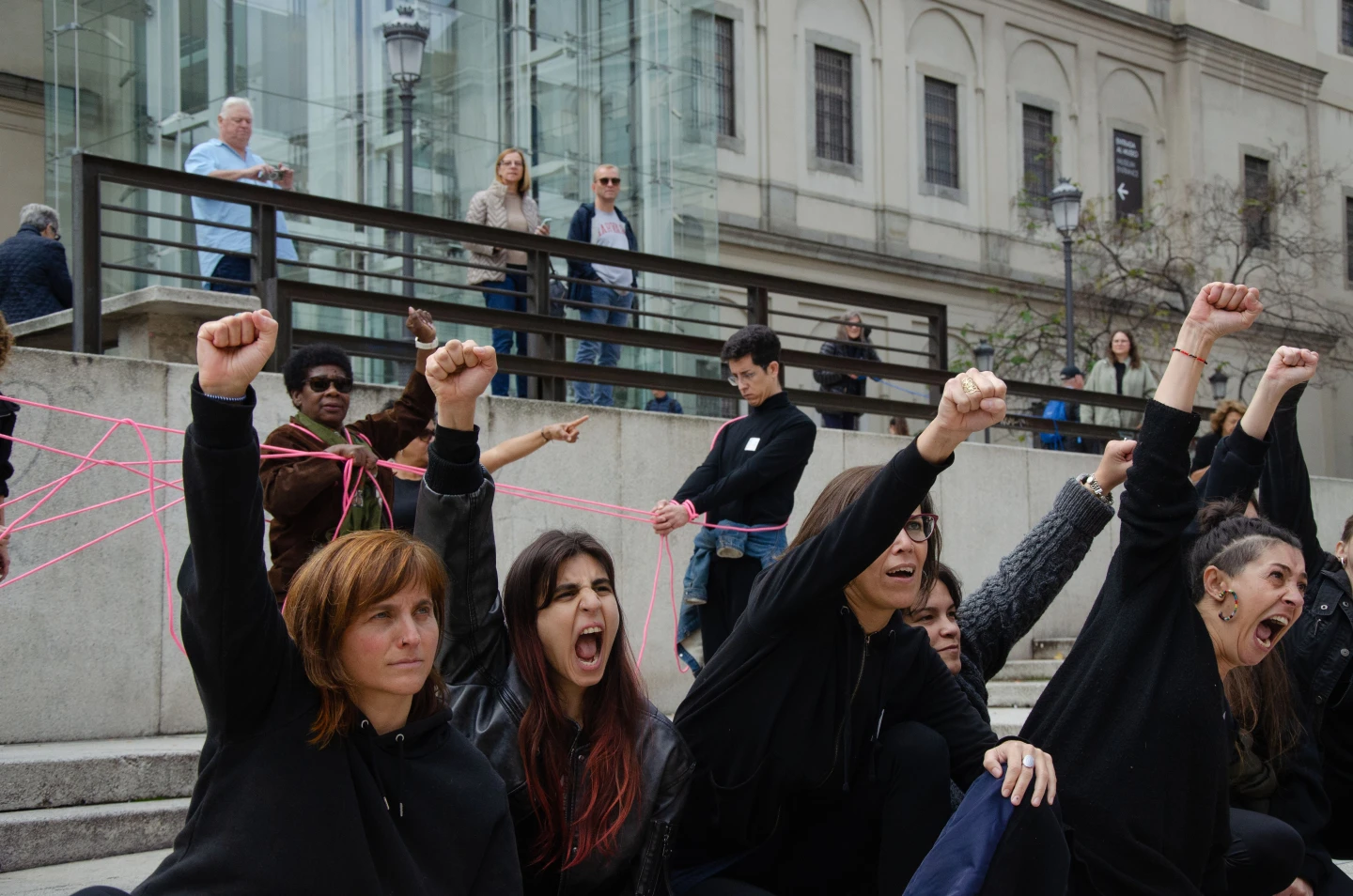
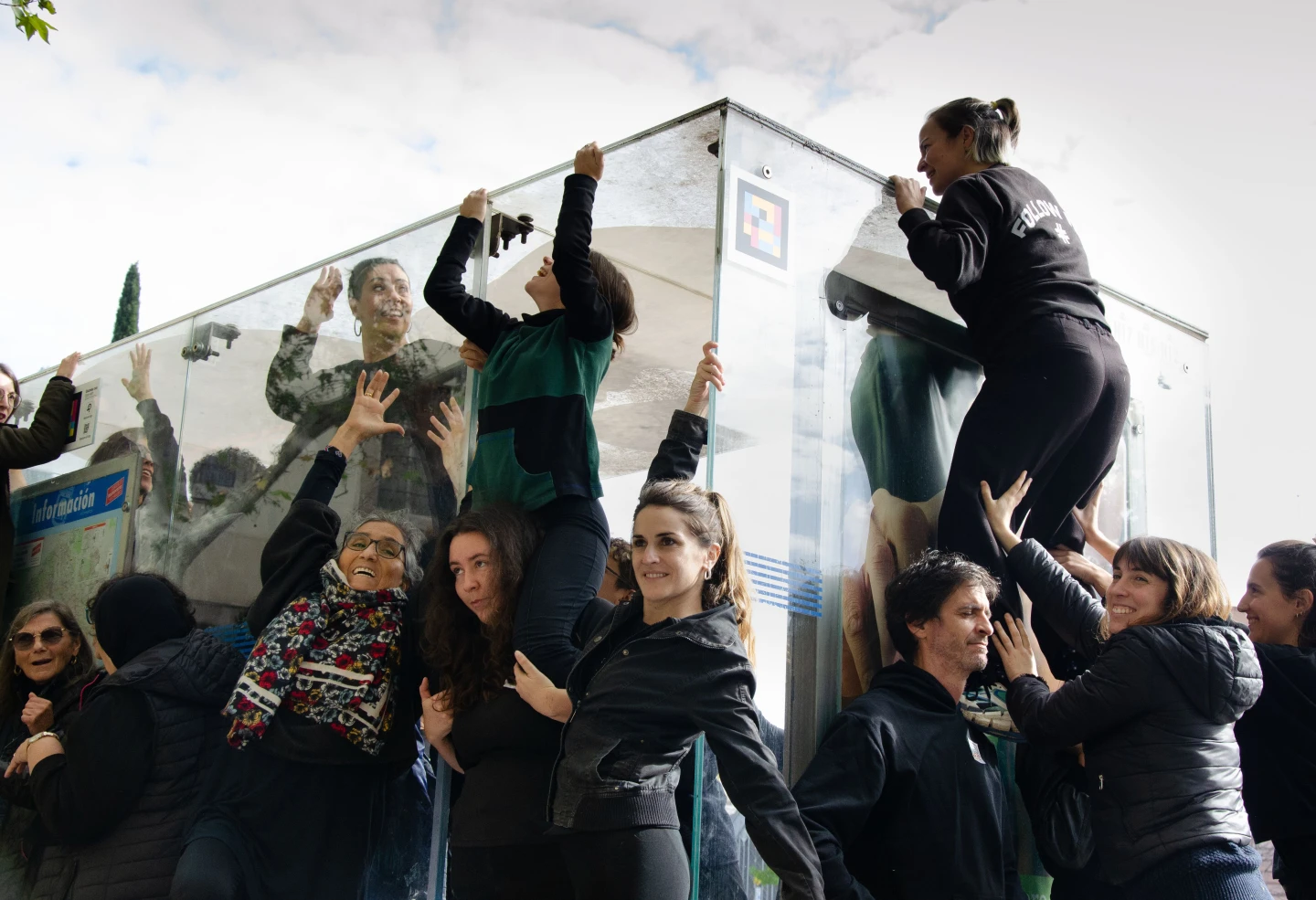
Más actividades

Difficulty. Forms and Political Effects of Deviation in Writing and Contemporary Art
23 February – 14 December 2026 – Check programme
Difficulty. Forms and Political Effects of Deviation in Writing and Contemporary Art is a study group aligned towards thinking about how certain contemporary artistic and cultural practices resist the referentiality that dominates the logics of production and the consumption of present-day art. At the centre of this proposal are the concepts of difficulty and deviation, under which it brings together any procedure capable of preventing artistic forms from being absorbed by a meaning that appears previous to and independent from its expression. By ensuring the perceptibility of their languages, difficulty invites us to think of meaning as the effect of a signifying tension; that is, as a productive and creative activity which, from the materiality of art objects, frees aesthetic experience from the representational mandate and those who participate in it from the passiveness associated with tasks of mimesis and decoding.
The economy of the referential norm translates the social logic of capitalism, where insidious forms of capturing subjectivity and meaning operate. In the early 1980s, and adopting a Marxist framework, poet Ron Silliman highlighted how this logic entailed separating language from any mark, gesture, script, form or syntax that might link it to the conditions of its production, rendering it fetichised (as if without a subject) and alienating its users in a use for which they are not responsible. This double dispossession encodes the political strategy of referential objectivity: with no subject and no trace of its own consistency, language is merely an object, that reality in which it disappears.
The political uses of referentiality, more sophisticated today than ever before, sustain the neoliberal-extractivist phase of capitalism that crosses through present-day societies politically, economically and aesthetically. Against them, fugitive artistic practices emerge which, drawing from Black and Queer studies and other subaltern critical positions, reject the objective limits of what exists, invent forms to name what lies outside what has already been named, and return to subjects the capacity to participate in processes of emission and interpretation.
Read from the standpoint of artistic work, the objective capture of referentiality may be called transparency. Viewed from a social contract that reproduces inequality in fixed identity positions, transparent in this objectivity are, precisely, the discourses that maintain the status quo of domination. Opposite the inferno of these discourses, this group aims to collectively explore, through deviant or fugitive works, the paradise of language that Monique Wittig encountered in the estranged practices of literature. For the political potency of difficulty — that is, its contribution to the utopia of a free language among equals — depends on making visible, first, its own deviations; from there, the norm that those deviations transgress; and finally, the narrowness of a norm which in no way exhausts the possibilities ofsaying, signifying, referring and producing a world.
From this denouncement of referential alienation, fetishisation and capture, Difficulty. Forms and Political Effects of Deviation in Writing and Contemporary Art turns its attention to the strategies of resistance deployed by contemporary artists and poets. Its interest is directed towards proposals as evidently difficult or evasive as those of Gertrude Stein, Lyn Hejinian, Theresa Hak Kyung Cha, Kameelah Janan Rasheed, Kathy Acker, María Salgado and Ricardo Carreira, and as seemingly simple as those of Fernanda Laguna, Felix Gonzalez Torres and Cecilia Vicuña, among other examples that can be added according to the desires and dynamics of the group.
The ten study group sessions, held between February and December, combine theoretical seminars, work with artworks from the Museo Reina Sofía’s Collections and exhibitions, reading workshops and public programs. All these formats serve as spaces of encounter to think commonly about certain problems of poetics — that is, certain political questions — of contemporary writing and art.
Difficulty. Forms and Political Effects of Deviation in Writing and Contemporary Art inaugurates the research line Goodbye, Representation, through which the Museo Reina Sofía’s Studies Directorship seeks to explore the emergence of contemporary artistic and cultural practices which move away from representation as a dominant aesthetic-political strategy and redirect their attention toward artistic languages that question the tendency to point, name and fix, advocating instead for fugitive aesthetics. Over its three-year duration, this research line materializes in study groups, seminars, screenings and other forms of public programming.

Institutional Decentralisation
Thursday, 21 May 2026 – 5:30pm
This series is organised by equipoMotor, a group of teenagers, young people and older people who have participated in the Museo Reina Sofía’s previous community education projects, and is structured around four themed blocks that pivot on the monstrous.
This fourth and final session centres on films that take the museum away from its axis and make it gaze from the edges. Pieces that work with that which is normally left out: peripheral territories, unpolished aesthetics, clumsy gestures full of intent. Instead of possessing an institutional lustre, here they are rough, precarious and strange in appearance, legitimate forms of making and showing culture. The idea is to think about what happens when central authority is displaced, when the ugly and the uncomfortable are not hidden, when they are recognised as part of the commons. Film that does not seek to be to one’s liking, but to open space and allow other ways of seeing and inhabiting the museum to enter stage.

Intergenerationality
Thursday, 9 April 2026 – 5:30pm
This series is organised by equipoMotor, a group of teenagers, young people and older people who have participated in the Museo Reina Sofía’s previous community education projects, and is structured around four themed blocks that pivot on the monstrous.
The third session gazes at film as a place from which to dismantle the idea of one sole history and one sole time. From a decolonial and queer perspective, it explores films which break the straight line of past-present-future, which mix memories, slow progress and leave space for rhythms which customarily make no room for official accounts. Here the images open cracks through which bodies, voices and affects appear, disrupting archive and questioning who narrates, and from where and for whom. The proposal is at once simple and ambitious: use film to imagine other modes of remembering, belonging and projecting futures we have not yet been able to live.

Remedios Zafra
Thursday March 19, 2026 - 19:00 h
The José Luis Brea Chair, dedicated to reflecting on the image and the epistemology of visuality in contemporary culture, opens its program with an inaugural lecture by essayist and thinker Remedios Zafra.
“That the contemporary antifeminist upsurge is constructed as an anti-intellectual drive is no coincidence; the two feed into one another. To advance a reactionary discourse that defends inequality, it is necessary to challenge gender studies and gender-equality policies, but also to devalue the very foundations of knowledge in which these have been most intensely developed over recent decades—while also undermining their institutional support: universities, art and research centers, and academic culture.
Feminism has been deeply linked to the affirmation of the most committed humanist thought. Periods of enlightenment and moments of transition toward more just social forms—sustained by education—have been when feminist demands have emerged most strongly. Awareness and achievements in equality increase when education plays a leading social role; thus, devaluing intellectual work also contributes to harming feminism, and vice versa, insofar as the bond between knowledge and feminism is not only conceptual and historical, but also intimate and political.
Today, antifeminism is used globally as the symbolic adhesive of far-right movements, in parallel with the devaluation of forms of knowledge emerging from the university and from science—mistreated by hoaxes and disinformation on social networks and through the spectacularization of life mediated by screens. These are consequences bound up with the primacy of a scopic value that for some time has been denigrating thought and positioning what is most seen as what is most valuable within the normalized mediation of technology. This inertia coexists with techno-libertarian proclamations that reactivate a patriarchy that uses the resentment of many men as a seductive and cohesive force to preserve and inflame privileges in the new world as techno-scenario.
This lecture will address this epochal context, delving into the synchronicity of these upsurges through an additional parallel between forms of patriarchal domination and techno-labor domination. A parallel in which feminism and intellectual work are both being harmed, while also sending signals that in both lie emancipatory responses to today’s reactionary turns and the neutralization of critique. This consonance would also speak to how the perverse patriarchal basis that turns women into sustainers of their own subordination finds its equivalent in the encouraged self-exploitation of cultural workers; in the legitimation of affective capital and symbolic capital as sufficient forms of payment; in the blurring of boundaries between life and work and in domestic isolation; or in the pressure to please and comply as an extended patriarchal form—today linked to the feigned enthusiasm of precarious workers, but also to technological adulation. In response to possible resistance and intellectual action, patriarchy has associated feminists with a future foretold as unhappy for them, equating “thought and consciousness” with unhappiness—where these have in fact been (and continue to be) levers of autonomy and emancipation.”
— Remedios Zafra

27th Contemporary Art Conservation Conference
Wednesday, 4, and Thursday, 5 March 2026
The 27th Contemporary Art Conservation Conference, organised by the Museo Reina Sofía’s Department of Conservation and Restoration, with the sponsorship of the Mapfre Foundation, is held on 4 and 5 March 2026. This international encounter sets out to share and debate experience and research, open new channels of study and reflect on conservation and the professional practice of restorers.
This edition will be held with in-person and online attendance formats, occurring simultaneously, via twenty-minute interventions followed by a five-minute Q&A.